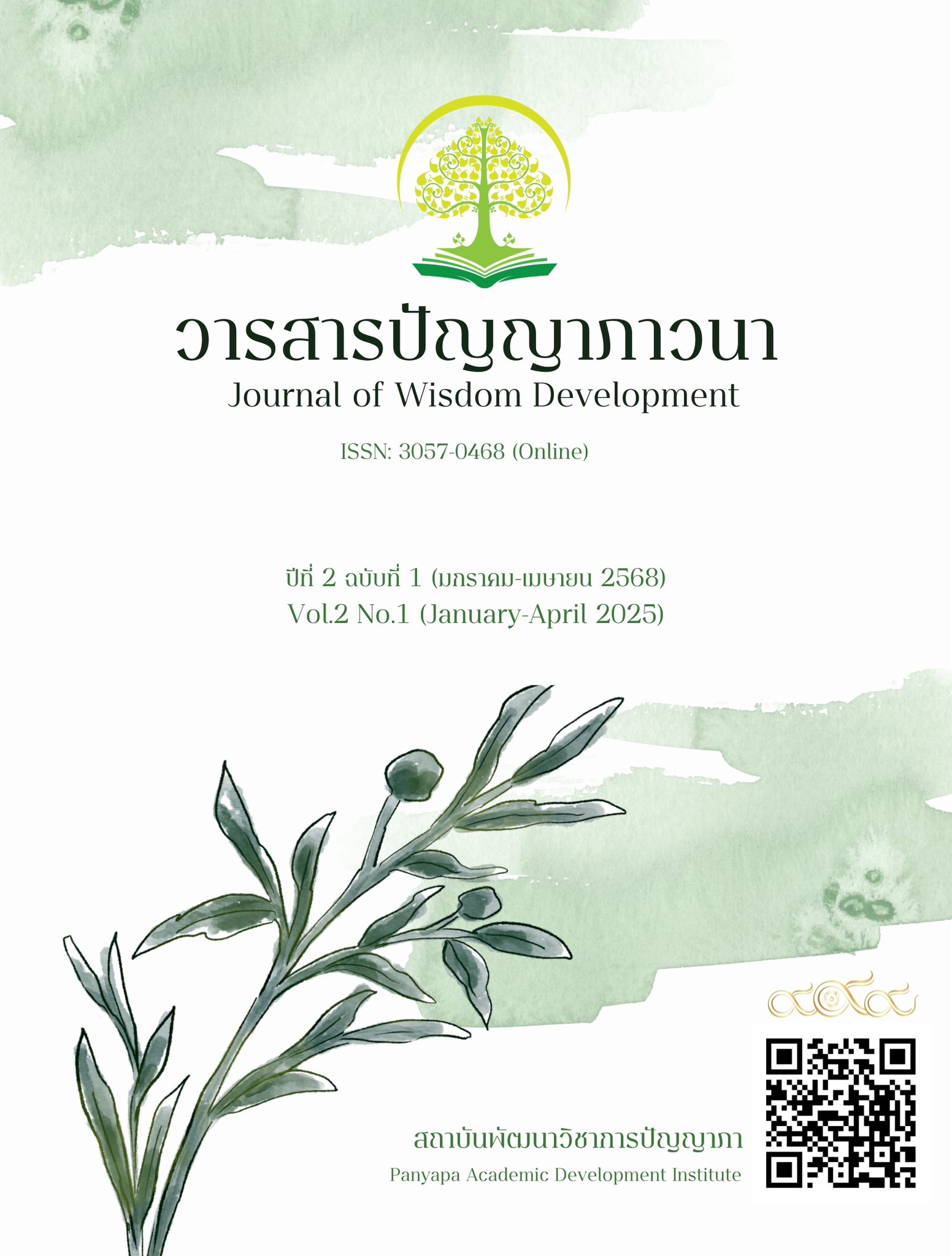LEADERSHIP SKILLS OF SCHOOL ADMINISTRATORS IN THE DIGITAL AGE
LEADERSHIP SKILLS OF SCHOOL ADMINISTRATORS IN THE DIGITAL AGE
Keywords:
Leadership skills, executives, in the digital ageAbstract
In the digital age, educational institution administrators need skills to pursue success in educational organizations. Leadership skills in this era must control abilities in various fields. Have the ability to adapt to use New technology is emerging and we know how to develop the organization all the time. Preparing to change executives Must learn throughout life Future strategic thinking Know how to diversify leadership in the organization and the integration between previous knowledge and newly learned things to use in the development of administrators and educational institutions who have knowledge, understanding, and vision regarding the use of technology to support learning. By using it to determine vision, mission, andAim of educational institution management Have technological leadership Have organizational leadership in innovation will make the organization become an innovative organization Technology can be used in the management of educational institutions in organizing learning for students appropriately. To serve as a guideline for educational institution administrators' skills in order to Consistent with goals and changesthat will happen in the future.
References
จิรพล สังข์โพธิ์ และคณะ. (2559). ภาวะผู้นำในการบริหารองค์กรยุค ดิจิทัล กรณีศึกษา : องค์กรไอทีและองค์กรที่เกี่ยวข้องกับไอทีในเขตกรุงเทพมหานครและปริมณฑล. วิทยาลัยนวัตกรรมมหาวิทยาลัยธรรมศาสตร์.
ชูชาติ พุทธมาลา. (2561). องค์ประกอบถาวะผู้นำทางดิจิทัลของผู้บริหารโรงเรียนสังกัด สำนักงานเขตพื้นที่การศึกษาประถมศึกษาจังหวัดหนองบัวลำภู. วิทยานิพนธ์ ปริญญาการศึกษามหาบัณฑิต สาขาวิชาการบริหารการศึกษา บัณฑิตวิทยาลัย มหาวิทยาลัยขอนแก่น.
มนูญ พรมรักษา. (2554). พฤติกรรมภาวะผู้นำการเปลี่ยนแปลงของผู้บริหารสถานศึกษาขนาดเล็ก สำนักงานเขตพื้นที่การศึกษาประถมศึกษาลำพูน เขต 1. การศึกษาค้นคว้าด้วยตนเอง ศษ.ม. มหาวิทยาลัยเชียงใหม่.
สุกัญญา แช่มช้อย. (2562). การบริหารสถานศึกษาในยุคดิจิทัล. จุฬาลงกรณ์มหาวิทยาลัย.
พิมลพรรณ เพชรสมบัติ. (2560). ภาวะผู้นำกับการพัฒนาทรัพยากรมนุษย์. วารสาร มจร การพัฒนา สังคม, 2(1), 1-10.
พรรณทิพย์ ศิริภัทราพงษ์. (2563). การบริหารสถานศึกษาในยุคดิจิทัล. สำนักพิมพ์แห่งจุฬาลงกรณ์มหาวิทยาลัย.
ภานุมาศ จันทร์ศรี. (2562). โมเดลการพัฒนาภาวะผู้นำเชิงดิจิทัลของผู้บริหารโรงเรียนขยาย โอกาสทางการศึกษา: การวิจัยแบบผสมผสานวิธี. วิทยานิพนธ์ปริญญาศึกษาศาสตร มหาบัณฑิต สาขาวิชาการบริหาร การศึกษา บัณฑิตวิทยาลัย มหาวิทยาลัยขอนแก่น.
เสริมศักดิ์ วิศาลาภรณ์. (2551). สภาพการจัดการศึกษาในจังหวัดชายแดนภาคใต้. สำนักงานเลขาธิการสภาการศึกษา.
ณิรดา เวชญาลักษณ์. (2560), ภาวะผู้นำทางการบริหาร. จุฬาลงกรณ์มหาวิทยาลัย.
อำนวย พลรักษา. (2556). ทักษะการบริหารของผู้บริหารสถานศึกษาขั้นพื้นฐาน สังกัด สำนักงานเขตพื้นที่การศึกษาประถมศึกษาขอนแก่น เขต 2. วิทยานิพนธ์ปริญญาพุทธศาสตรมหาบัณฑิต สาขาวิชาการบริหารการศึกษา บัณฑิตวิทยาลัย มหาวิทยาลัยมหาจุฬาลงกรณราชวิทยาลัย.
อำนวย มีราคา. (2566). การบริหารจัดการศึกษาสู่ความเป็นเลิศ. หจก.สมศักดิ์การพิมพ์ กรุ๊ป.
American Library Association. (2012). Digital literacy, libraries, and public policy.
Dubrin. (2012). Leadership research findings, Practice, and skill (7 th ed.). South Western, Cengage Learning.
Drake, L. Roe, W. H. (1986). The Principal-Ship. Macmillan.
Gorton, C. Gorton, B. (2018). 6 Characteristics of Digital Leadership. https://digileaders.com/6-characteristics-digital-leadership/.
Koontz, H., Weihrich, H. (1988). Management (9th ed). McGraw-Hill.
Martin, A., & Grudziecki, J. (2006). DigEuLit: Concepts and Tools for Digital Literacy Development. ITALICS: Innovations In Teaching & Learning In Information & Computer Sciences, 5(4), 249-267.
Mitchell, Terrence R., and Larson. Jr. Jane R. (1987). People in Organization : An Introduction to Organizational Behavior (3rd ed). McGraw–Hill.
Sullivan, Thomas P. (1997). Environmental law handbook. Government institutes.
Stogdill, R. M. (1974). Handbook of Leadership : A Servey of Theory and Research. The Free Press.






